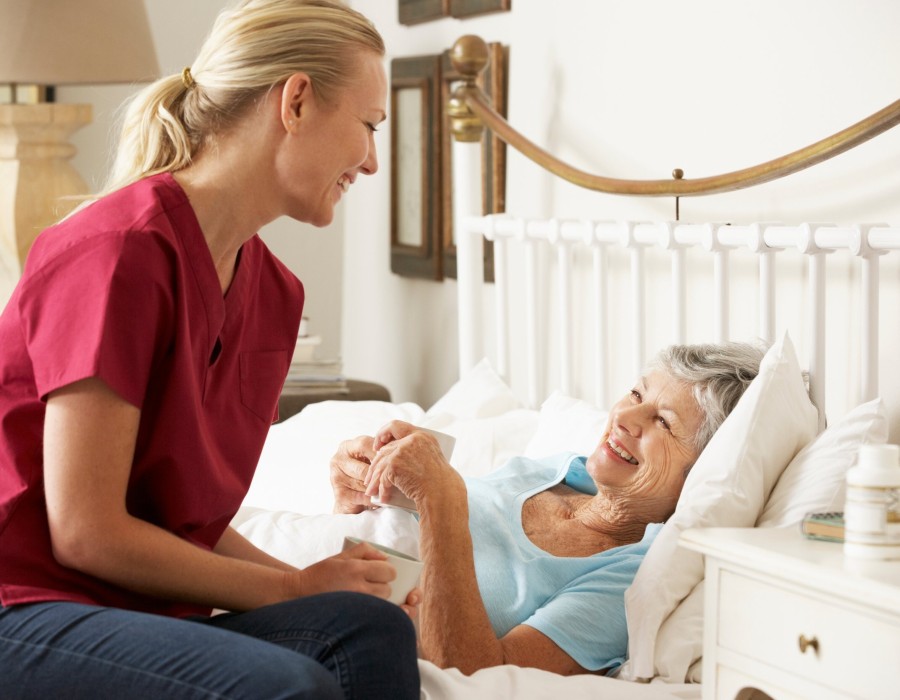In today’s fast-paced world, home healthcare has emerged as a reliable and compassionate solution for patients who require medical attention in the comfort of their own homes. From elderly individuals managing chronic conditions to post-surgery patients recovering at home, the role of home nurses has become increasingly vital. But what exactly qualifies someone to become a home nurse? What training do they undergo to ensure quality care and professionalism? If you're exploring Home Nursing Services in Dubai, understanding the training behind these healthcare providers is essential.
The Foundation: Formal Education in Nursing
Before diving into specialized home care training, all home nurses begin with a formal education in nursing. This typically involves:
- Diploma or Degree in Nursing: Home nurses usually hold either a diploma (often a 2–3-year program) or a bachelor's degree in nursing, which provides them with a strong foundation in medical science, human anatomy, pharmacology, and patient care principles.
- Clinical Experience: As part of their academic curriculum, nurses complete supervised clinical rotations in hospitals or clinics. This hands-on experience is crucial in shaping their practical knowledge and skill set.
This combination of theoretical knowledge and real-world experience allows nurses to transition smoothly into specialized roles, including home nursing.
Licensing and Certification
To practice legally, home nurses must pass a national or regional licensing examination. These exams test their competence in a range of medical procedures, patient interactions, and emergency responses. In Dubai and other regions in the UAE, nurses are also required to:
- Pass licensing exams set by local health authorities (like the DHA, MOH, or HAAD depending on the emirate).
- Maintain an active license through continued education and periodic renewals.
This ensures that all practicing nurses meet stringent standards and remain up to date with evolving medical practices.
Specialized Training for Home Nursing
Home nursing is distinct from hospital-based care. The environment, resources, and nature of patient interaction vary considerably. That’s why additional training is required for nurses transitioning into home care roles. This includes:
1. Home Care Procedures
Nurses are trained to manage a wide variety of medical tasks within the home environment. These include:
- Wound dressing and post-operative care
- Administering medications and injections
- Managing catheters and IVs
- Monitoring vital signs and chronic conditions
- Pain management
Because they often work alone without immediate backup, home nurses must be adept at making informed decisions, handling medical equipment, and identifying early signs of complications.
2. Patient-Centered Communication
In home settings, the nurse often becomes the primary medical point of contact. Training in patient communication is emphasized, with a focus on:
- Active listening
- Empathy and emotional intelligence
- Educating patients and their families about conditions and treatments
- Offering support while respecting patient autonomy
Effective communication ensures that patients feel safe, understood, and engaged in their own recovery process.
3. Elderly and Palliative Care Training
Given that many patients receiving home care are elderly or terminally ill, nurses are often trained in:
- Geriatric care practices
- Managing age-related diseases like dementia or arthritis
- Comfort care and end-of-life support
- Counseling and family communication in palliative contexts
This training prepares nurses to deliver not just medical assistance, but also emotional and psychological support.
4. Emergency Response Preparedness
Unlike a hospital where emergencies are managed by teams, home nurses must act swiftly and independently. Training includes:
- Recognizing and responding to cardiac arrest, respiratory failure, or allergic reactions
- Using emergency equipment (like oxygen tanks or portable defibrillators)
- Implementing first aid and CPR protocols
Home nurses must remain calm and competent under pressure, ensuring patient safety in high-stakes situations.
Continuing Education and Workshops
Healthcare is constantly evolving, and so is the knowledge required for quality home nursing. Many nurses regularly participate in:
- Workshops and seminars on emerging healthcare practices
- Online or in-person courses focused on new technologies
- Certification programs in niche areas like pediatric home care or physiotherapy support
These learning opportunities allow nurses to refine their skills and remain at the forefront of medical excellence.

Soft Skills and Cultural Competency
Technical skills alone aren’t enough. Home nurses often interact with families from diverse cultural backgrounds. Training in cultural sensitivity, adaptability, and ethics ensures that care is respectful and appropriate. They must also be punctual, organized, discreet, and trustworthy, especially when working unsupervised in patients’ private homes.
Why Their Training Matters
The training home nurses receive is extensive because the job demands more than just basic medical knowledge. They are caregivers, educators, and often the emotional backbone of a household dealing with illness. Their training enables them to:
- Provide consistent, high-quality care
- Foster trust with patients and families
- Prevent hospital readmissions through effective home monitoring
- Enhance the quality of life for those they care for
In a city like Dubai—where a diverse population and a fast-growing healthcare sector converge—the demand for highly trained, compassionate home nurses is greater than ever.
Whether you're considering care for a loved one or planning for post-operative recovery, choosing the right provider begins with understanding the qualifications behind the care. Behind every skilled home nurse is years of education, rigorous certification, and an unwavering commitment to healing.
So, if you're seeking compassionate, professional care from the comfort of your home, exploring Home Nursing Services Dubai can be the first step toward better health and peace of mind.





Comments